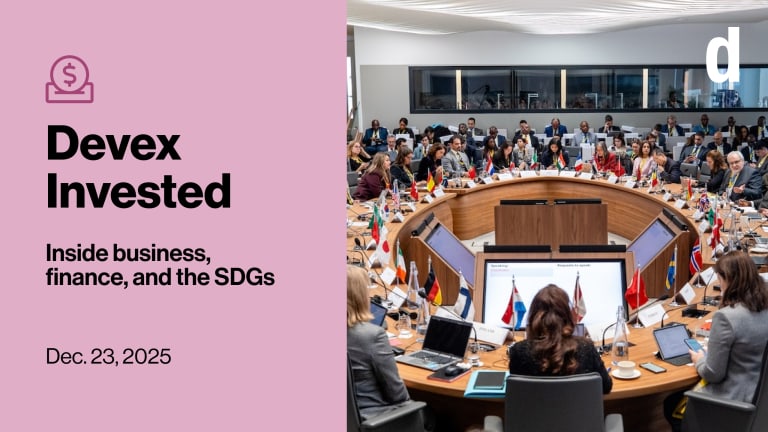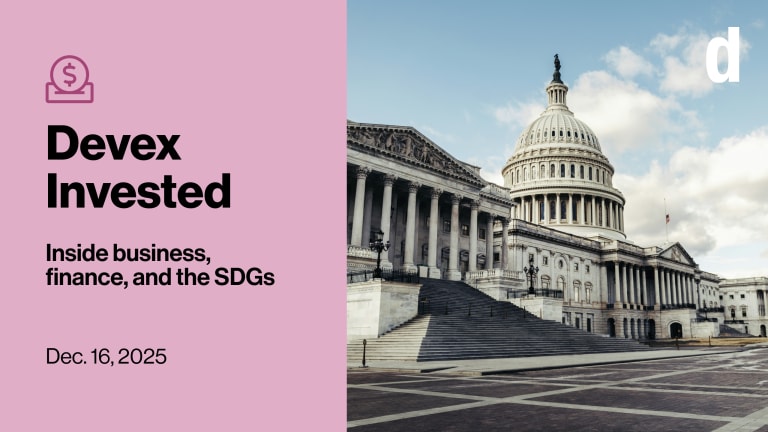
The new development finance legislation introduced on Feb. 27, 2018, is exactly what the United States needs to modernize its approach to international private sector development.
The Better Utilization of Investments Leading to Development (BUILD) Act would create a full-service U.S. International Development Finance Corporation. This proposal is a positive step for people in developing countries, will bolster U.S. national security, and is a great deal for American taxpayers.
This is the right time to launch a new U.S. International Development Finance Corporation because development finance, rather than aid, is the future. Foreign aid is the appropriate tool for tackling health challenges and responding to humanitarian crises. Development finance — or the deployment of commercial capital for public policy purposes — is the most potent weapon we have to expand markets and spur private sector growth. When the U.S. wants to encourage business in Egypt, catalyze infrastructure in Nigeria, or create opportunities for women in banking in Pakistan, we require development finance. The new National Security Strategy recognizes that, “modernized development finance tools can promote stability, prosperity, and political reform.”
See more related topics:
► Bipartisan bill gives US development finance a boost
► Exclusive: New US DFI expected to get strong White House support
► Trump budget proposes more US aid cuts, but backs new DFI
► Opinion: The Development Credit Authority needs to stay in USAID
Now is also the time for an American push on development finance because of the rise of China and other emerging markets. These countries, along with our traditional allies in Europe, are already using development finance to bolster their influence and to expand investment opportunities. The U.S. has made a start, but without a fully enabled development finance institution, we risk falling further behind, particularly as China pursues a very aggressive development strategy in critical parts of the world.
Most of all, development finance is the future because of who we are as a country. Americans believe in our model of private sector-led entrepreneurial capitalism. Our deep capital markets, our capacity for innovation, and our belief in free markets all provide a unique platform for using development finance to promote prosperity. That’s why the BUILD Act has broad bipartisan support, co-introduced by Senators Bob Corker (R-TN) and Chris Coons (D-DE), and Congressmen Ted Yoho (R-FLA) and Adam Smith (D-WA).
The U.S. International Development Finance Corporation will be built on the foundation of the Overseas Private Investment Corporation, a small high-performing agency that since 1971 has provided political risk insurance and debt capital to private sector projects in support of U.S. foreign policy and development objectives. The new agency will inherit OPIC’s investment portfolio, but will be bigger and better because of additional flexibility and tools required in the 21st century. These enhancements include a grant window to build the project pipeline, limited equity authority to respond to new investment conditions, and additional staff to generate more deals in more places.
The new agency is not only good for development and U.S. national security, it is a great deal for U.S. taxpayers as it won’t cost any new money and will generate efficiencies across the federal government. The U.S. International Development Finance Corporation is designed to operate at a profit, continuing OPIC’s record of 39 years in a row paying money into the U.S. Treasury. The new institution will also allow reform and consolidation, bringing some relevant capabilities to promote the private sector under one roof. And because the U.S. International Development Finance Corporation won’t require new capital, there is no zero-sum battle with existing foreign assistance.
In the 21st century, the U.S. faces harsh global challenges. At the same time, the rise of new regions and the growth of the global middle class create huge potential opportunities for American business. To meet these challenges and to seize these opportunities, we need the full range of security, diplomatic, and development tools. The new U.S. International Development Finance Corporation is a big step in that direction.









